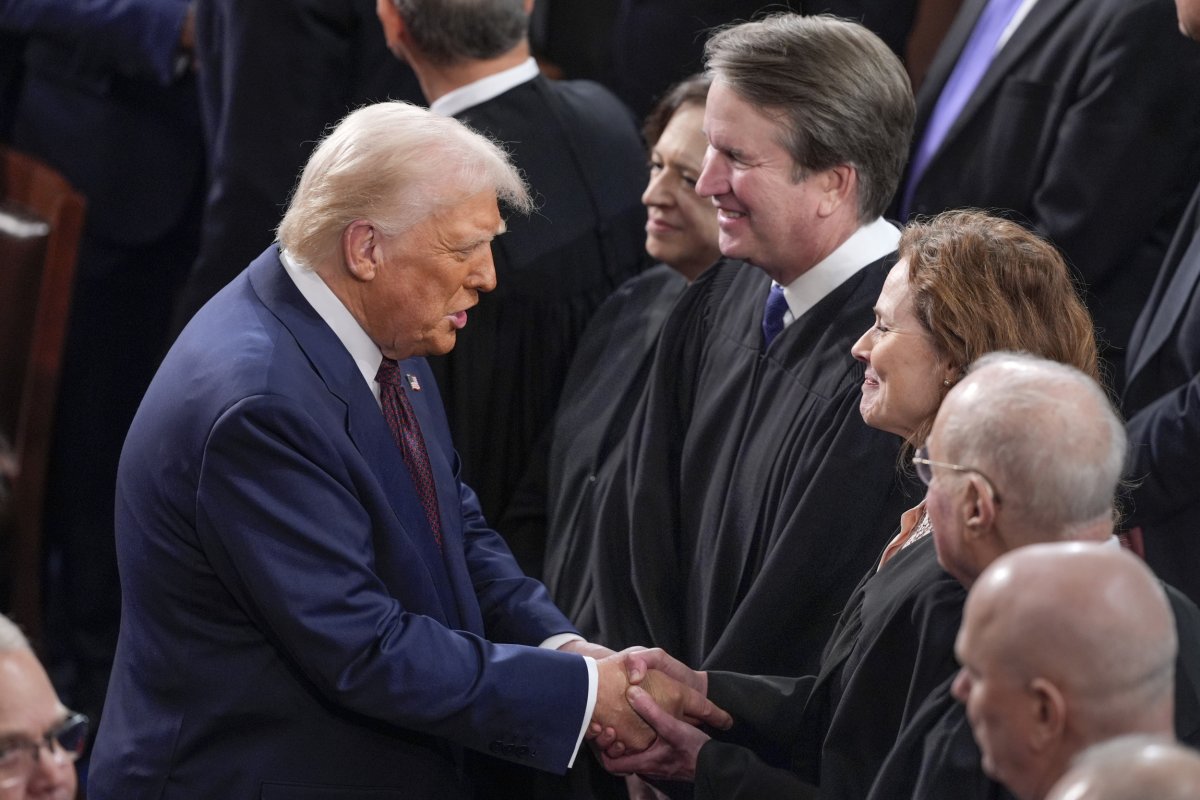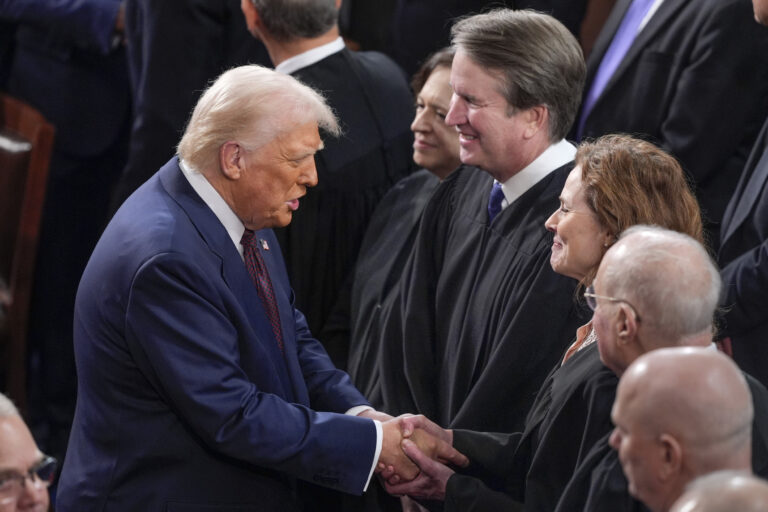The Trump administration on Thursday asked the U.S. Supreme Court to lift a lower court’s order that blocked immigration stops in Southern California, which a federal judge deemed indiscriminate and unconstitutional.
The emergency appeal follows a refusal by the 9th U.S. Circuit Court of Appeals to dissolve the temporary restraining order. The Supreme Court will now decide whether to grant the Trump administration emergency relief pending further litigation.
Why It Matters
The Trump administration has been fighting many legal battles in an effort to push through President Donald Trump’s sweeping legislative agenda, which met immediate resistance in courts across the country.
According to the Associated Press, the administration has fought over 250 different cases over Trump’s orders, with 91 pending, 109 partially or fully blocked and 74 left in effect.
California has been one of the most significant opponents to the president’s immigration agenda, resulting in a major showdown between protesters and law enforcement in Los Angeles. The clashes prompted Trump to deploy the National Guard and Marines to quell the demonstrations against the wishes of California Governor Gavin Newsom.
Trump’s move proved highly controversial, raising questions about appropriate force and presidential versus state authority.

More
Associated Press
What To Know
Maame E. Frimpong, the U.S. District Judge for the Central District of California, issued an injunction last week blocking the Trump administration’s immigration stops and arrests in Southern California. Frimpong cited a “mountain of evidence” suggesting that the federal government’s immigration enforcement tactics violated constitutional protections against unreasonable searches and seizures.
The administration argued in its emergency request to the Supreme Court that Frimpong’s order poses a significant barrier to enforcing federal immigration laws. The Justice Department contended that the decision unjustly restricts the ability of federal agents to carry out lawful enforcement operations.
The 9th U.S. Circuit Court of Appeals agreed with Frimpong, questioning the logic of the federal government’s argument that the stops did not lack reasonable suspicion and were not part of the injunction.
Jacob Roth, a lawyer for the government, argued that Frimpong’s ruling was too broad and there isn’t sufficient evidence proving the government’s policy amounts to unconstitutional search and seizure.
“Legally, I think it’s appropriate to use the factors for reasonable suspicion,” Roth said, referring to race, language, presence at location, and occupation, which were all listed in the temporary restraining order.
What People Are Saying
Department of Homeland Security spokesperson Tricia McLaughlin previously in a statement to the Associated Press: “Unelected judges are undermining the will of the American people. President Trump and Secretary Noem are putting the American people first by removing illegal aliens who pose a threat to our communities.”
Attorney General Pam Bondi, in a statement: “Sanctuary policies impede law enforcement and put American citizens at risk by design…The Department of Justice will continue bringing litigation against sanctuary jurisdictions and work closely with the Department of Homeland Security to eradicate these harmful policies around the country.”
DHS Secretary Kristi Noem, in a statement: “These sanctuary city politicians are endangering Americans and our law enforcement in order to protect violent criminal illegal aliens.”
What Happens Next
The administration has appealed Frimpong’s order to the Supreme Court, asking the justices to immediately halt the injunction.
A hearing for a preliminary injunction, which would be a more substantial court order as the lawsuit proceeds, is scheduled for September.
This article includes reporting by the Associated Press.
Update 8/7/25, 7:04 p.m. ET: This article has been updated with additional information.


